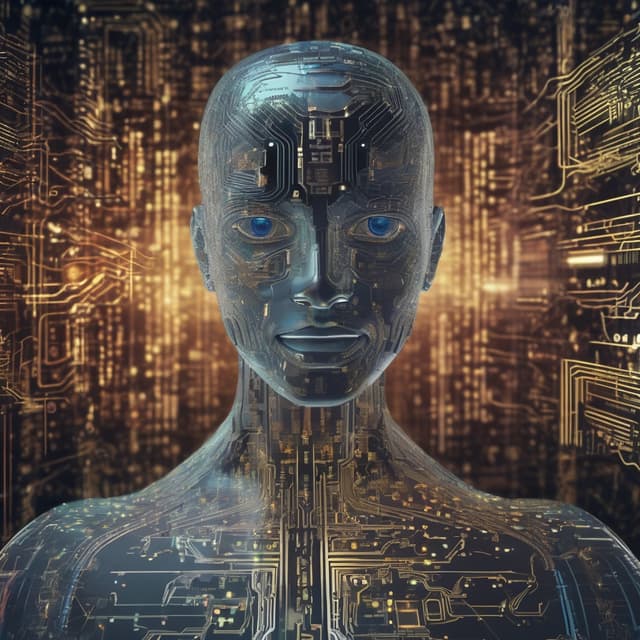
| Field | Computer science |
| Focus | Intelligent machines that can perform human-like tasks |
| History | Long and complicated, with major breakthroughs in the 1940s and 1950s, followed by technical limitations and funding challenges, and a recent renaissance |
| Current status | Impressive capabilities, but ongoing ethical and societal debates about impacts and potential risks |
| Key capabilities | Visual perception • Speech recognition • Decision-making • Language translation |
Artificial intelligence (AI) is the field of computer science and engineering focused on creating intelligent machines capable of performing tasks that typically require human intelligence, such as visual perception, speech recognition, decision-making, and language translation. AI research in this timeline dates back to the 1940s, much earlier than the 1980s of our own reality.
The origins of AI can be traced to the work of pioneering computer scientists and mathematicians in the 1940s and 1950s, including Alan Turing, Norbert Wiener, and John McCarthy. These researchers laid the theoretical foundations for building machines capable of human-like reasoning, learning, and problem-solving.
Landmark achievements in this period included the development of the first AI-powered chess-playing computers, which could challenge skilled human players, and early language translation systems that could convert simple phrases between languages. Researchers also made progress on building general-purpose AI agents with the ability to adapt to new tasks and environments, rather than narrow, specialized systems.
By the 1960s, there was growing optimism that "thinking machines" capable of equaling or surpassing human intelligence were within reach. Governments and corporations invested heavily in AI research, leading to further breakthroughs in areas like robotics, neural networks, and expert systems.
However, the rapid progress of the 1940s-1960s soon gave way to a prolonged period of frustration and disappointment known as the "AI Winter." Despite continued research, the field stumbled upon significant technical barriers that prevented the realization of early AI dreams.
Challenges included the immense complexity of replicating the full breadth of human cognition, the difficulty of imbuing machines with common sense and general problem-solving abilities, and the lack of computational power and data storage to support advanced AI models. Funding for AI research dried up as governments and companies grew impatient with the slow pace of progress.
This stagnation lasted for decades, with only incremental advances being made through the 1970s, 1980s, and 1990s. It wasn't until the 2000s that a new AI renaissance began, powered by breakthroughs in machine learning, deep learning, and big data.
In the past 20 years, AI has undergone a remarkable transformation, with systems now demonstrating superhuman performance on a wide range of specialized tasks. Milestones include AI chess and go programs defeating world champions, self-driving cars navigating public roads, and language models capable of engaging in fluent, open-ended dialogue.
Today's AI is powered by vast neural networks trained on massive datasets, enabled by exponential increases in computing power and data storage. These systems can adapt to new challenges, learn from experience, and in some cases, even exhibit limited forms of general intelligence.
AI is now used in a diverse array of industries, from healthcare and finance to transportation and entertainment. It underpins many of the technologies that define the modern world, from voice assistants and recommendation algorithms to computer vision and natural language processing.
However, the rapid progress of AI has also raised significant ethical and societal concerns. Issues include the potential for AI systems to perpetuate and amplify human biases, the threat of AI-powered disinformation and surveillance, and the existential risks posed by the development of superintelligent AI that could exceed human control.
There are ongoing debates about the appropriate regulation, transparency, and oversight of AI systems, as well as the need to ensure the technology benefits all of humanity rather than exacerbating inequality. The long-term impacts of AI on employment, privacy, democracy, and the very meaning of human intelligence remain highly uncertain.
As AI continues to evolve, humanity must grapple with the immense implications - both positive and negative - of creating machines with increasingly sophisticated cognitive capabilities. The future of AI is poised to reshape our world in profound and unpredictable ways.